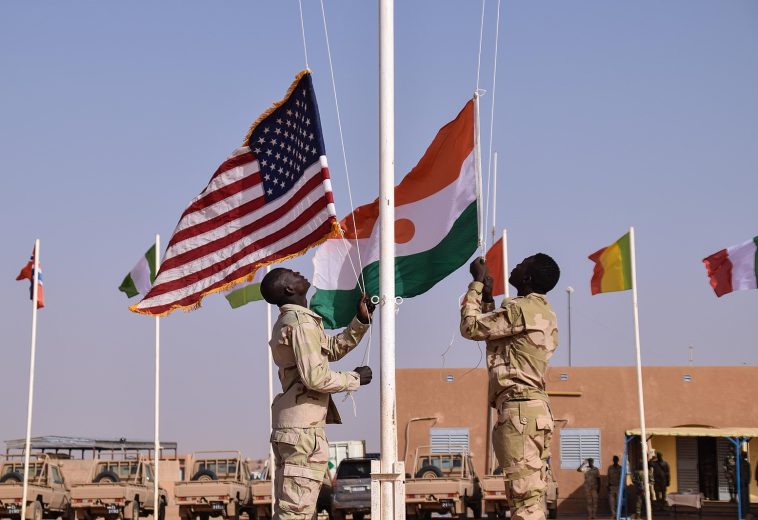President Joe Biden welcomed Kenyan President William Ruto to the White House for a State Visit and Dinner, marking 60 years of U.S.-Kenya partnership. This occasion highlights the enduring and evolving relationship between the two nations, rooted in shared values, deep cooperation, and a common vision for the future. Here are ten key takeaways from President William Ruto’s visit.
Democracy, Governance, and Human Rights
The U.S. and Kenya reaffirmed their commitment to shared democratic values and human rights. The State Visit emphasized the importance of inclusive, sustainable governance, and addressed the challenges of misinformation, hate-fueled violence, and corruption. The leaders announced nearly $40 million in U.S. funding for democracy and governance initiatives in Kenya, aimed at defending democratic processes, increasing women’s political participation, and advancing digital democracy.
Supporting Independent Civil Society
President Ruto’s signing of the legal instruments to operationalize the 2013 Public Benefits Organization Act was a significant step towards institutionalizing civil society protections. The U.S. announced $700,000 in new assistance, complementing the existing $2.7 million for civil society engagement and oversight, and an additional $1.9 million to support youth empowerment and disability inclusion initiatives.
Transparency and Open Government
The U.S. and Kenya committed to strengthening the Open Government Partnership, with USAID Administrator Samantha Power representing the U.S. at an upcoming OGP event. This collaboration aims to promote transparency and accountability in governance, showcasing a powerful global coalition on open government.
Combatting Corruption
The U.S. plans to provide significant funding to combat corruption in Kenya, including $500,000 for a new Fiscal Integrity Program, $500,000 for anti-corruption advocacy, and additional support for Kenya’s proposed Whistleblower Protection law. USAID’s $2.7 million funding aims to improve the enforcement of anti-corruption policies and laws.
Health Partnerships
Decades of U.S.-Kenya collaboration in the health sector have led to significant improvements. The leaders highlighted ongoing efforts in the fight against HIV/AIDS, with the U.S. contributing over $7 billion through PEPFAR. They also discussed partnerships to enhance global health security, reduce malaria impacts, and expand local health manufacturing capabilities.
Digital Health Advancements
The U.S. announced over $31 million to support Kenya’s digital health initiatives. This includes deploying digital health solutions to improve disease prevention, response, and patient care, and supporting solar power solutions for health facilities to enhance emergency medical services.
Research and Innovation
The longstanding partnership between the CDC and the Kenyan Medical Research Institute (KEMRI) continues to thrive. The leaders committed to expanding research collaborations on malaria, HIV, tuberculosis, and other public health issues. The U.S. provided an estimated $12.9 million to support KEMRI’s research efforts.
Strengthening Law Enforcement and Justice
The U.S. and Kenya announced a new $7 million partnership to modernize and professionalize Kenya’s National Police Service. Additionally, the U.S. plans to provide $4.9 million to combat transnational organized crime and support criminal justice sector reforms in Kenya and other East African countries.
Promoting Human Rights
The U.S. and Kenya emphasized their commitment to upholding human rights. They announced bilateral dialogues and technical engagements to strengthen collaboration on security sector governance, atrocity prevention, and the Women, Peace, and Security agenda in Kenya and the region.
READ ALSO: Security and Economy: How helpful is the US in Sudan?
Expanding Trade and Investment
The leaders discussed enhancing trade and investment between the two nations. They highlighted initiatives to boost local manufacturing of medical products, with the U.S. supporting Kenyan manufacturers through investments and partnerships to secure and diversify global supply chains.
President Ruto’s visit to the White House signifies a deepening of the U.S.-Kenya partnership, focusing on key areas that benefit both nations and contribute to global stability and prosperity. The commitments made during this visit lay a solid foundation for continued collaboration and mutual growth.


